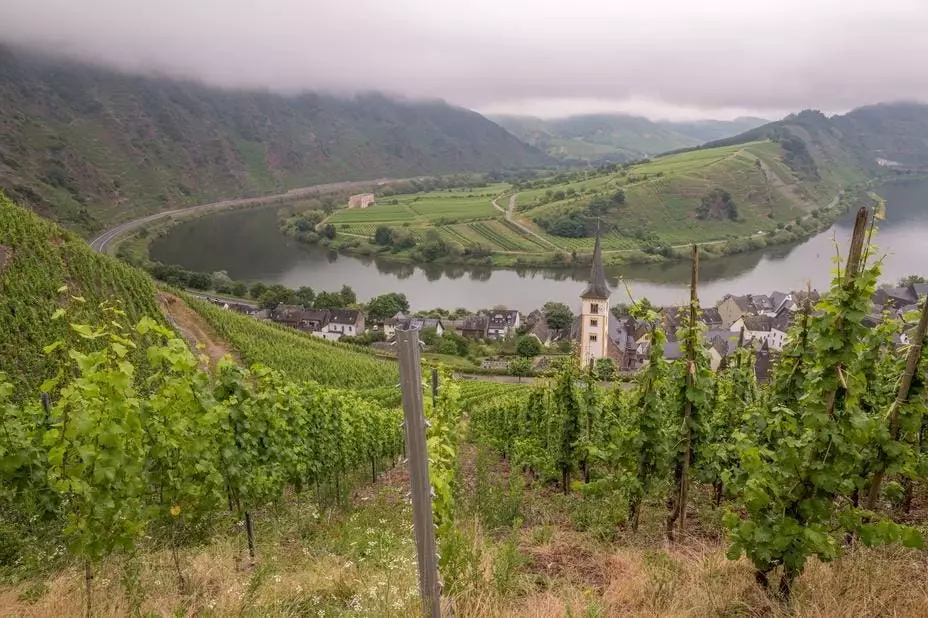Standing atop the steep vineyard slopes of the Thörnicher Ritcher Vineyard in the Mosel region, one may question the rationale behind planting vineyards in such unforgiving terrain. However, when considering the ideal cool microclimate and complex slate and quartzite soils, it becomes evident why this region is renowned for producing high-acid Rieslings with unparalleled tension and verve. As described by wine experts, the Mosel is truly a world unto itself, offering a diverse range of exposures, angles, and degrees of steepness that contribute to the production of exceptional wines.
While the Mosel region is home to a variety of grapes, Riesling remains the star of the show. With a history dating back to the 15th century, Riesling has evolved from a sweet elixir favored by English nobility to a versatile grape capable of producing wines ranging from off-dry to bone-dry. The unique ability of German Riesling to balance high levels of natural sugars with acidity has captivated wine enthusiasts for centuries, making it a sought-after varietal in the global market.
In recent years, there has been a resurgence of interest in traditional winemaking practices in the Mosel region. Winemakers are revisiting old techniques and embracing sustainable viticulture methods to produce wines that showcase the true expression of their terroir. While sweet wines have always been a hallmark of German Riesling, the trend towards drier styles has gained momentum, appealing to a new generation of wine drinkers. This shift reflects a greater emphasis on balance, freshness, and lower alcohol content in Mosel wines.
Navigating the world of Mosel Riesling can be a daunting task, especially when it comes to deciphering sweetness levels and quality indicators. However, wine education and exploration can be an enjoyable journey, with many wineries offering color-coded systems or international scales to help consumers make informed decisions. Ultimately, the best way to appreciate Mosel Riesling is to taste for yourself and discover the myriad of styles that this region has to offer.
With a new generation of passionate winemakers and a renewed focus on sustainability and quality, the Mosel region is poised for a period of exciting reinvention. From iconic vineyards with centuries of winemaking history to innovative producers experimenting with new styles, Mosel Riesling continues to captivate wine enthusiasts around the world. As the region continues to evolve and adapt to changing tastes, one thing remains constant – the timeless appeal of Mosel Riesling and its endless potential for exploration and enjoyment.


Napsat komentář